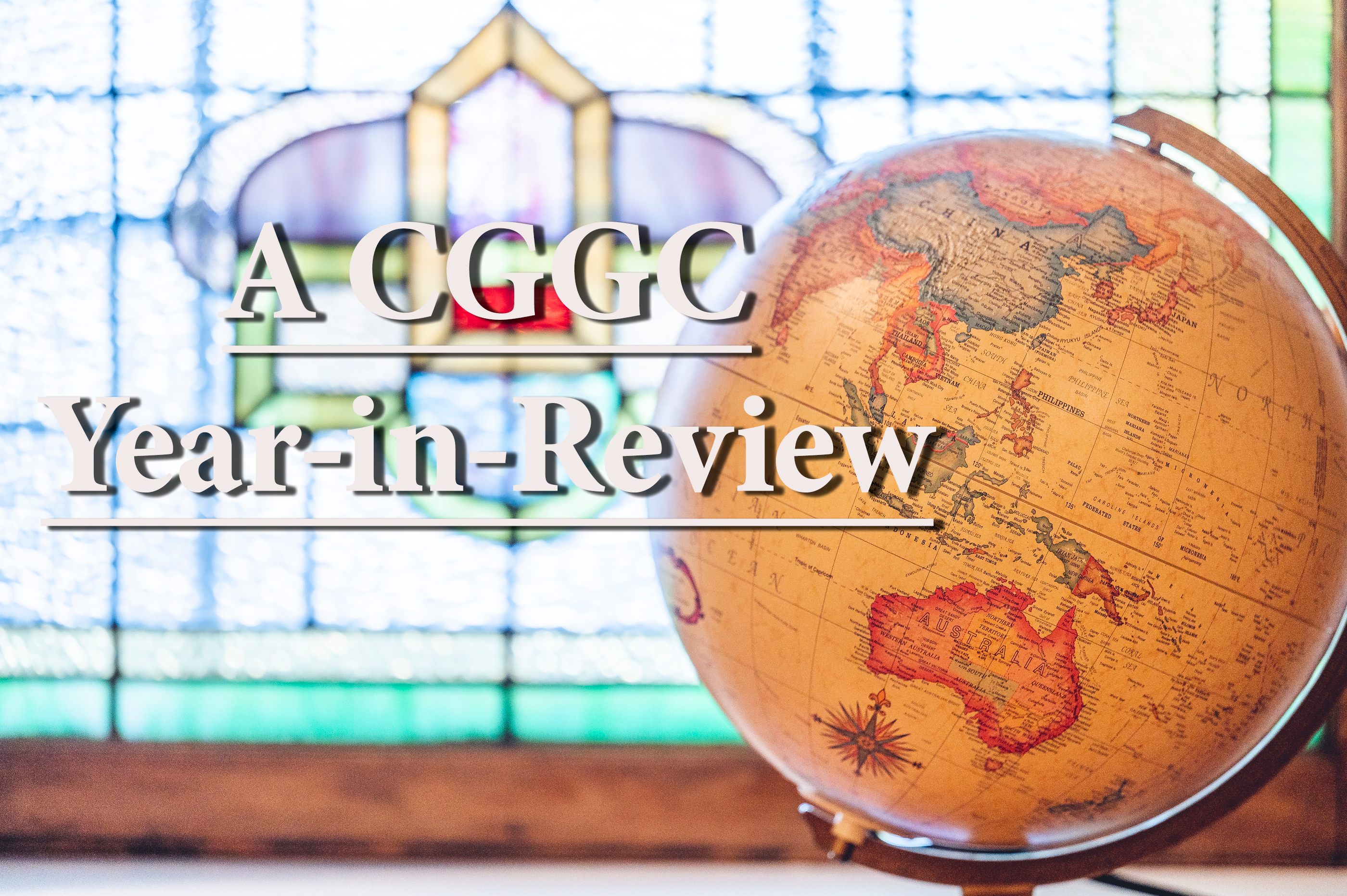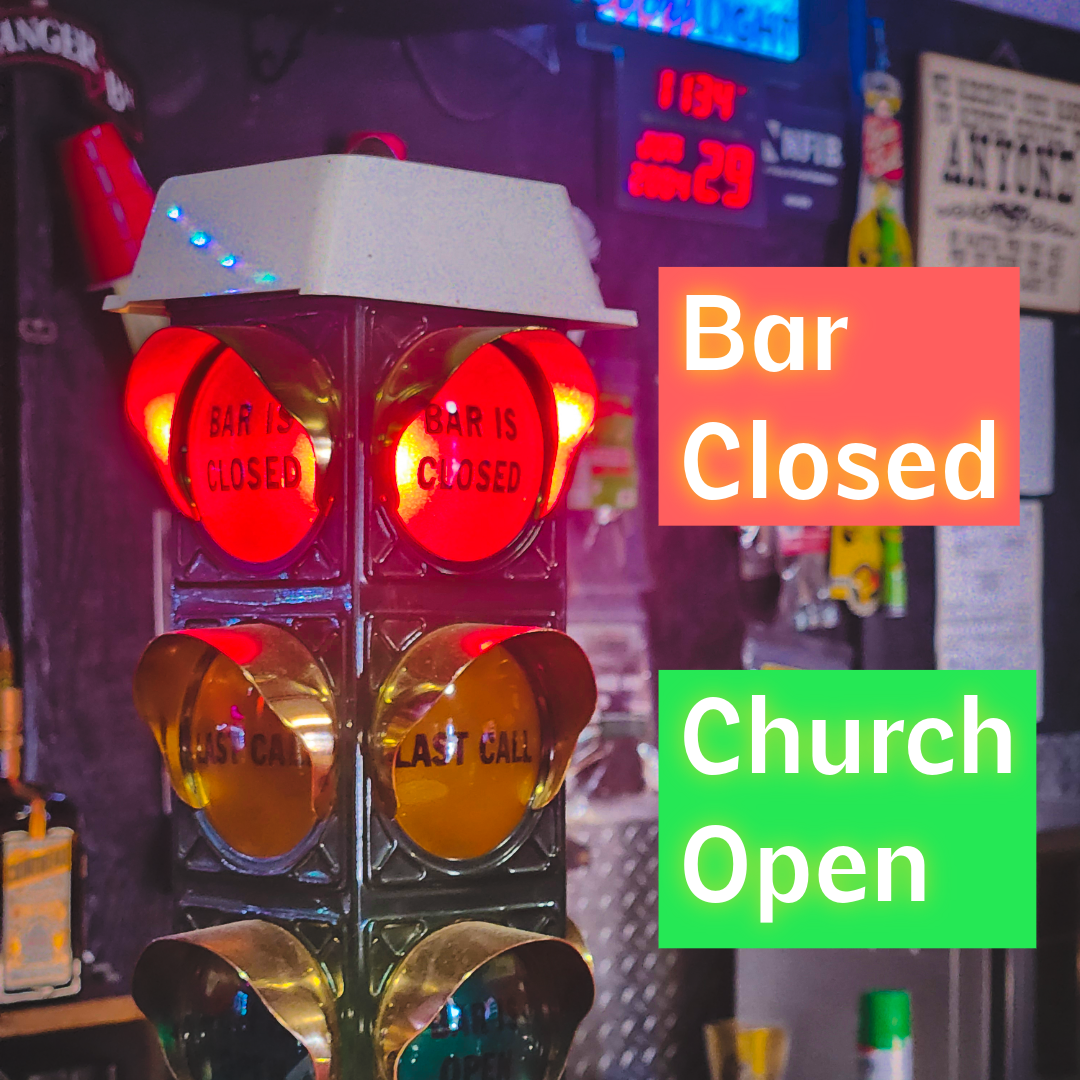
I recently spoke with a man terribly distraught with the state of his own life. The phrases “I don’t know what to do”, and “I don’t hear from God” were stated and echoed throughout the conversation. He wept desperate and bitter tears. To hear him tell it, God seemed almost entirely absent from his life. I sat there, listening and comprehending the weight of all he was dealing with. “God won’t talk to me”, he said, but then explained that “something told me to walk in this building.” The paradox smacked both of us in the face. He said, “I thought no one was here, but then you came around the corner.” The uncanniness of the situation made me reflect upon one of the most frustrating features of my own life. God’s presence is terrifyingly absent as I look into the future and oppressively silent in the present, but like an ear-splitting orchestral roar in the past. God’s activity resounds and rebounds across time and space, growing ever louder with each passing moment. I rarely feel that God is active in the present moment, but even as recently as yesterday, His work in my own life seems almost unmistakable.
It is for this very reason that I believe it is incredibly important to take holistic stock and inventory of our past. To keenly recall and remember what it is the Lord has done for us. It is all too easy for us to become discouraged by the invisible God. Likewise, I know I am an especially forgetful person. I need consistent reminders to bolster my faith. It is for this reason that every year we retell the story of Advent, Easter, and Pentecost. That is to say, while we are doing it for good reason, we’re about to do the most cliché thing you can do in digital publishing, a year-in-review article.
Year-in-Review
Globally, nationally, and denominationally, 2022 seemed to start promising. Perhaps the mere idea of a new year draws latent optimism to the surface, but given the January birth pangs of covid in 2020 and January election conflicts in 2021, 2022 seemed better. There was the hope (which I think was largely proved true) that 2022 would not be another pandemic year. Covid may not have entirely gone away, and the changes it brought to institutions like the church may not go away for a long time, but we would not be living in a constant pandemic state, fretting or arguing about closures, masks, vaccines, and social distancing. Here we see God’s providence in action. The opening up of borders and travel has meant that our ability to stay in touch with our mission fields around the globe, supporting them and visiting them, has massively improved. This was one of the foremost challenges in the last two years and it has been effectively eliminated as a problem.
Within the CGGC, there was certainly a sense of optimism as the denomination (at least here in the office) prepared for Triennial Conference. 2022 was the year when the whole denomination comes together to forge a new vision, fellowship together, make leadership changes, and do the business of the church. The first issue of The Global Advocate focused on “Reimagine,” the theme for our conference this year, and how we might begin the process of rethinking how we do church, how we reach the lost, and how we disciple. You can find this issue, and all our issues of The Global Advocate online at the link here.
Moving a little further into the year, the CGGC continued on with its theme of reimagining evangelism. Unfortunately, whatever else happened here or abroad was largely overshadowed by the Russian invasion of Ukraine on February 24th. While the destructive figures and lives lost remain mostly speculative, it is well documented that nearly 10 million Ukrainians were displaced and became refugees, many pouring into neighboring countries, causing humanitarian disasters there as well. Thanks to modern technology, the pace of information coming out of Ukraine feels unprecedented. Minute by minute, pictures and videos of the devastation flooded on to the internet, and even now, 10 months later, tweets and videos of war go viral. As it overshadowed what came before, likewise the war in Ukraine (and the global economic and political effects of it) would, one way or another, continue to overshadow many events this year. The side effects of the war, including the food and grain shortages, especially to import-dependent countries, created another disaster. The war began to feel like a series of dominoes and the world was reminded of how interconnected we’ve become.
In comparison to the tragedy of the war, the fact that less than 2 months before the war began, Ukraine fully integrated Chaplains into their military seems small, but still incredibly providential. Again, here I think we see clear signs of God’s work. Ukraine’s military chaplains see themselves as fighting for the souls of the men and women of Ukraine’s military personnel. The chaplains feel a powerful responsibility to uphold the standards of conduct that separate a defensive war from the kind that bombs maternity wards. This represents a significant step forward for a nation that, while ostensibly mostly Christian, still struggles under the malaise of being a post-Soviet Union country, where religion was depressed. You can read a blog post we published on this topic here.
In the month of March, we highlighted the accomplishments of Winebrenner Theological Seminary which has massively reimagined how education is paid for and how it’s delivered. Theological Education finally becomes affordable and accessible with their innovative $300 a month plan, where almost all classes are online, meaning both cost and geography are no longer a barrier to quality education. In the past few years Winebrenner made difficult decisions, some motivated by pressing financial concerns, and others by welcomed opportunities, but both allowed for them to sell their building, and thereby lower the cost of education substantially. The result has seen unprecedented increases in student enrollment. At a time when many colleges, especially small, private ones, are struggling, WTS’s turn around and growth feels like a genuine miracle.
May of 2022 proved to be a truly difficult month for the country as a whole, and for Christian denominations specifically. As of May 1st, The Global Methodist Church denomination was created as a conservative response to the United Methodist Church. While there had been much talk of a deep split within the UMC for the last two years around the issue of LGBT inclusion and gay marriage, the creation of the GMC opened the floodgates for individual churches to begin the process of disaffiliating with the UMC. It’s difficult to pin down exactly how many churches have left, but some sources suggest less than 2,000 churches have left the UMC, which has around 30,000 churches. Proportionally, it’s possible that the number of disaffiliations seem exaggerated. As members of an entirely different congregation, it can be difficult to know how to feel about the split. It’s hard to be encouraged by Christians disagreeing and separating, but simultaneously, Christians have always found ways to separate over disagreements, and to continue doing the Lord’s work under different organizational structures. Whether they call themselves UMC, GMC or even CGGC, there is still one God, one salvation, and one mission.
On the second day of the month, a leaked draft of the Supreme Court's decision to overturn Roe v. Wade was published. It would ultimately be proved true at the end of June, but the leaked draft sparked considerable backlash and protests. The response by many pastors in the CGGC was a desire to see Christians put their efforts where their mouths have a been for years. If the overturn of Roe v. Wade was what we really wanted, then it’s our turn to step up to help support pregnant mothers and single mothers, to help foster and adopt more children than we have historically. Many Christians see this as a welcome victory, and likewise it should be recognized that many people in the United States, particularly women, see this as a disaster and are worried that this repeal could spark more repeals of women’s rights. This becomes another place where Christians can rightly minister, explain our position, and take care of those in need.
The month of May didn’t relent. On May 22nd, a report by investigation company Guidepost Solutions was released about a coverup by the Southern Baptist Convention, which brought to the surface a denomination-wide scandal to protect those accused of abuse at all levels of SBC leadership. Abuse is horrible wherever it happens, but it’s especially horrible when it is clergy doing it, and doubly so when other church leaders hide it. The SBC has not only committed injustice but has actively prevented justice too. The scandal has become a reckoning for religious institutions, that God’s light shines on the darkness and it cannot be kept from Him. This scandal has motivated the CGGC to take additional steps to ensure proper whistleblowing procedures are in place to prevent these kinds of abuses from happening here.
In the middle of June, a tornado swept through the middle of Ohio, and wind damage tore through Camp Otyokwah, near Butler, Ohio. Meanwhile, campers huddled together in shelters, and parents were almost certainly praying desperate prayers for their safety. The damage to the camp was tremendous and the path of the tornado was very close to the camp. Thankfully, by the grace of God, no one was injured during the storm. A few shelters were damaged from falling trees, powerlines were down, and streets were blocked, but everyone was safe. It took parents the better part of the day to get to the camp as the roads were cleared, but the staff at Camp Otyokwah handled the situation remarkably professionally.
Triennial Conference sessions kicked off at the end of July and with it came powerful worship from the Grand Point worship team, insightful talks from our speaker Brad Brisco, and exhorting celebration from numerous church success stories. Brad’s thoughtful discussion about reimagining how we evangelize and disciple, and even how we do church foundationally, was provoking and spurred on discussion that was a mix of pensive and even repentant about the ways we’ve been too insular.
The conference brings together not only regional leaders, but pastors and delegates from all across the nation. Likewise, many of our missional field leaders were present (another blessing that the relaxation of covid restriction allowed for). Leaders from countries like Haiti, India, Bangladesh, Thailand, and more were present to celebrate and report on their work. Not only was there fellowship between the different regions, but there was also the creation of a brand-new CGGC region in the South East of the United States. It is currently small, but it represents the kind of multiplication that the CGGC has been pushing for.
Ultimately, Triennial was a time for fellowship and celebration that really felt needed after the difficult past two years of ministry. In many ways, there was much providence in that God allowed our conference to happen both before and after the pandemic, rather than during it. Pastors and leaders walked away from conference feeling both refreshed and inspired.
Later in the year, September proved to be another painful month globally. Multiple devastating hurricanes hit already beleaguered countries, and massive, potentially regime changing protests were sparked, foremost among them in Iran and Haiti, where unrest persists still. The issues pose a particular challenge for the CGGC which has many historic ties to and institutions in Haiti. The unrest and strife in the country has posed serious operational problems for the Haiti hospital which, even with proper funding, cannot secure the energy and materials necessary to work at full capacity. Likewise, numerous other challenges brew beneath the surface that have only been exacerbated by the gang violence, and the recent Cholera outbreak. Amazingly, Haiti was one of the only countries in the world to largely avoid Covid, and therefore travel strictions were typically light. Unfortunately, while most of the world has relaxed restrictions and is thinking about problems other than pandemics, Haiti has gone in the exact opposite direction. If there is one place which needs our prayer and attention most, it’s probably Haiti.
In better news, CGGC Executive Director Lance Finley visited Parkwood Church of God in Fort Wayne, IN, and walked away feeling like he “had a glimpse of heaven.” Parkwood has had a wild past decade, where it seems that every time Pastor Jim Keckler meets someone new, they ask if they can use the church's building to have their own service. Four churches now meet at different times throughout the week in Parkwood Church, and all of them gathered together at once this past November to worship as one body. Surprisingly, or perhaps unsurprisingly at this point, a new Indian church has asked to meet at Parkwood as well. The willingness of the Parkwood congregation and its leadership to open their building to so many distinct congregations is beautiful, and it’s the kind of Christian hospitality that we all strive for. You can read more about Lance's experiences here.
Conclusion
This recollection doesn’t necessarily deliver us one key takeaway, and it doesn’t offer a simple picture of what God has done or is doing in the world, or even in the CGGC. Likewise, this look back certainly isn't an exhaustive list. There are many other stories that we could have touched on or walked through. What it does is offer us a sense of assurance that even in the midst of world-shaping events, God is present. His activity and His movement are often difficult to discern until we have a wider perspective, which often means we see God most clearly in the rear-view mirror, as the events of history and their ramifications become coherent. This assurance ought to propel us forward toward greater faith and trust in Him. It ought to motivate us to daring action even in uncertain times.
CGGC eNews—Vol. 16, No. 52





Login To Leave Comment